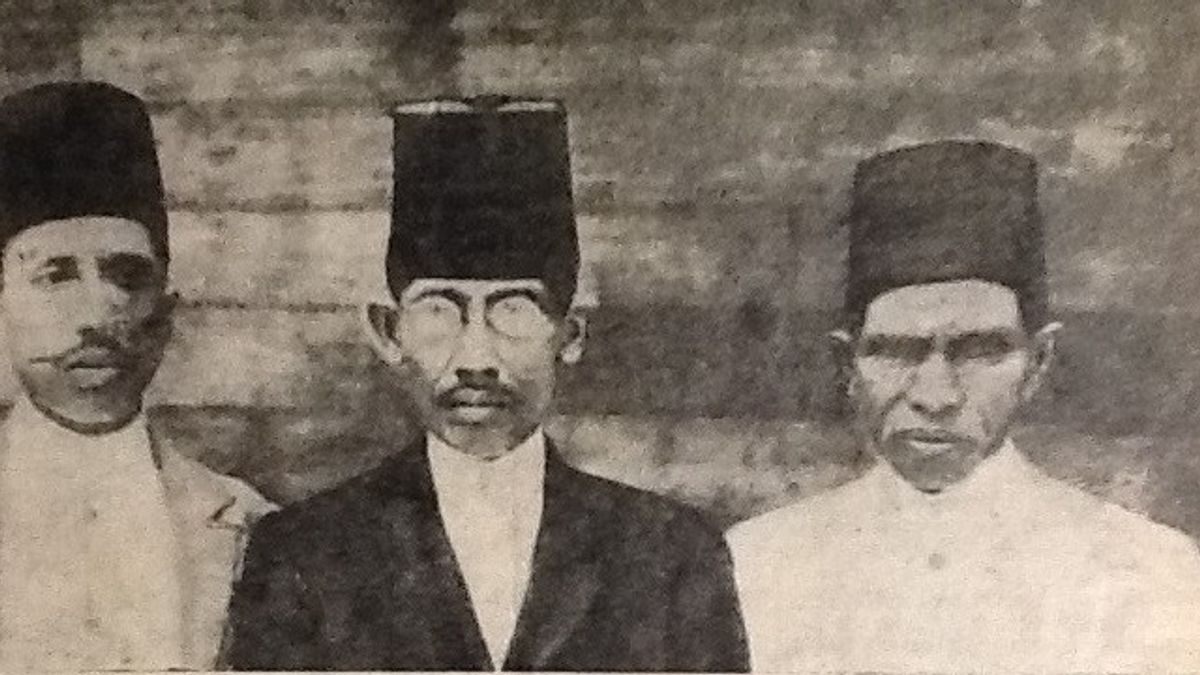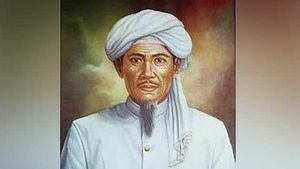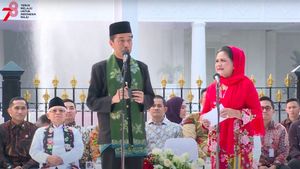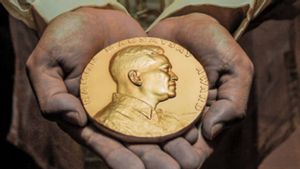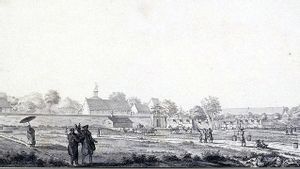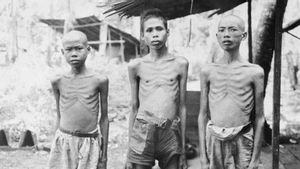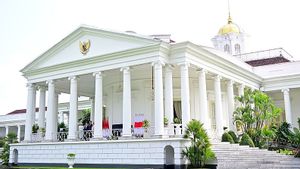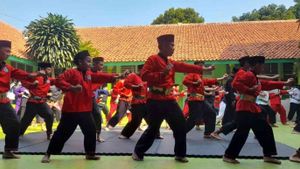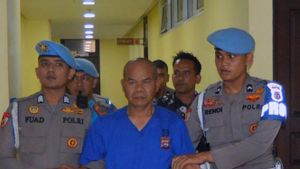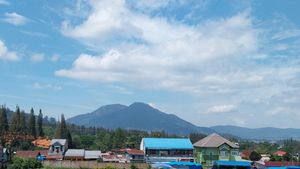JAKARTA History today, 82 years ago, August 8, 1941, Haji Abdul Karim Amrullah (Haji Rasul) was exiled by the Dutch to Sukabumi. The preventive sentence was perpetuated because the Hajj of the Prophet was considered a dangerous figure. Dakwanya is often considered to interfere with the existence of the Dutch in Minangkabau.
Previously, Buya Hamka's father was famous as a famous Muhammadiyah figure. He is an Islamic reformist in Minangkabau land. He chose the path of religious education as a fighting pilgrimage.
Muslim intellectuals grew a lot during the Dutch colonial period. Abdul Karim Amrullah, for example. he studied Islamic knowledge at every opportunity. This reason made him interested in studying religion to Saudi Arabia (Makkah and Medina).
His religious knowledge is growing rapidly. He chose to return to the archipelago. The man known as Haji Rasul is also concerned about the suffering of the people with limited access to education. He also struggled through educational channels to educate young people in Minangkabau.
The sensitivity to the condition of the people then brought him together with many great figures of Islam Nusantara. From Kiai Haji Ahmad Dahlan to HOS Tjokroaminoto. The meeting made the Prophet's Hajj firmly perpetuate the struggle through educational channels.
All of this was because he was not very interested in the communist ideology held by Islamic leaders. Even though communism was referred to as a means of release. This narrative is because the Haji of the Prophet considers that the most correct attempt to defeat colonialism is to strengthen the believers.
His closeness to Ahmad Dahlan also paid off. The Prophet's Hajj then developed Muhammadiyah in Minangkabau. This leadership made the name Haji Rasul famous throughout the country. His name is also known as one of the Muslim intellectuals that stood out in the early 20th century.
In the early years of the 20th century, three students of Sheikh Ahmad Chatib in Mecca -- Sheikh Abdul Karim Amrullah (Haji Rasul) Haji Abdullah Ahmad, and Sheikh Mohd Djamil Djambek pioneered the spread of modern Islamic teachings when the three returned to their hometowns. However, in line with the views of the teacher, even though they took a lot of teachings from the Islamic reformer from Egypt, Muhammad Abduh.
"These three hajjes limited their teachings only in the fields of religion and education, and they were very reluctant to follow the political views of Muhammad Abduh's colleague, Jamaluddin Al Afghani, who then hit Egypt and Turkey. But the separation between religion and politics was apparently not respected by most of their students," explained Audrey R. Kahin in the book From the Instegration of West Sumatra and Indonesian Politics 1926-1998 (2005).
Haji Rasul is also active in providing recitation, advice, and fatwas. His followers are also hoarding. However, Haji Rasul does not want himself to be considered active in politics. He called his breakthrough part of spreading religious knowledge only.
His existence as a scholar was then investigated by the Dutch. The owner of power wants to implement a wild school ordonation. Whoever is wanted to build a school must have Dutch permission. Likewise, the teachers. The Dutch are worried that the school held by Haji Rasul will become a subversion warehouse.
SEE ALSO:
Haji Rasul then took the meeting of two thousand scholars in Bukittinggi to oppose the Illegal School Ordonation in 1828. Since then all kinds of interference between the Dutch in Islamic affairs were opposed by the Prophet's Hajj. He opposed the Dutch openly and made him exiled to Sukabumi on August 8, 1941. He entered the Dutch radar as a dangerous figure.
Dutch white officials have repeatedly called him to warn; his family members, including one of his wives, were also harassed; a son, Hamka's half-brother, was arrested for making writings that were deemed inciting, and died in prison. In early 1941, when the German army occupied the Netherlands and the situation in the critical East Indies, the Assistant for the Dutch Resident came on a motorbike to the Prophet's Hajj surau to arrest him.
Even though the press and Volksraad protested, he was exiled to Java and placed under house arrest until Japan arrived. The reason for the Dutch was that the legitimate government rule and customary laws could no longer be carried out in the country he sat on. Hamka, who was attending the Muhammadiyah conference in Aceh, heard the news of his father's expulsion on the radio, "said James R. Rush in the book Adi cerita Hamka (2020).
The English, Chinese, Japanese, Arabic, and French versions are automatically generated by the AI. So there may still be inaccuracies in translating, please always see Indonesian as our main language. (system supported by DigitalSiber.id)
